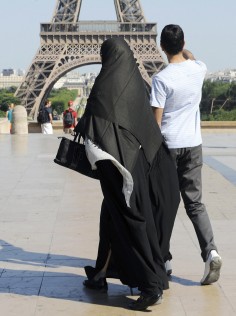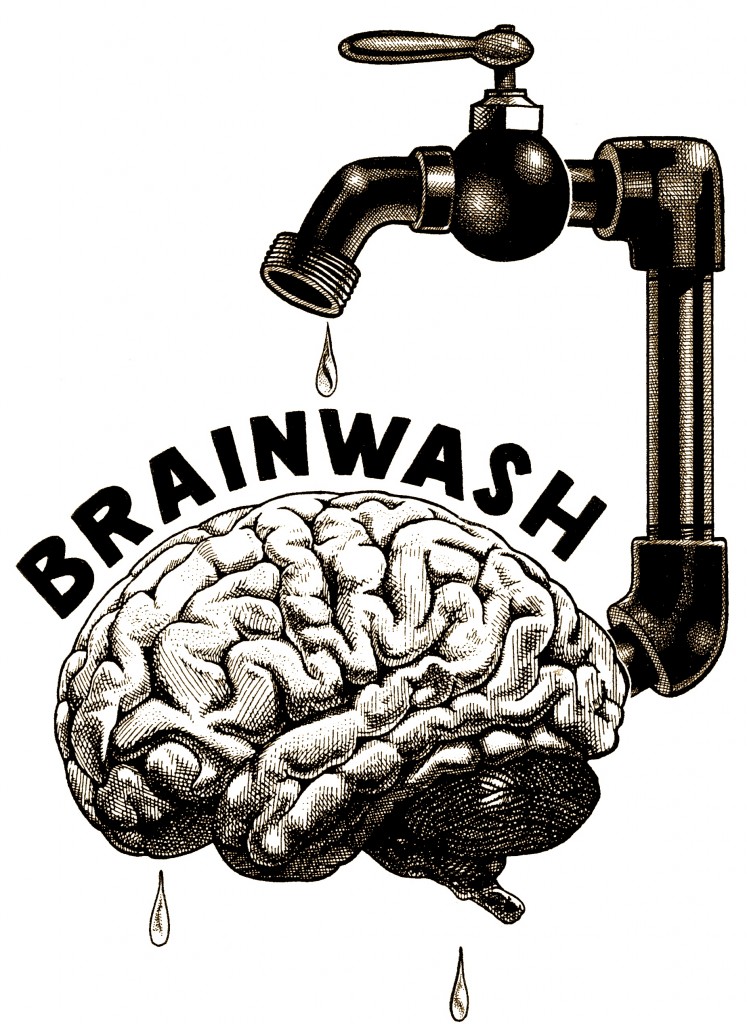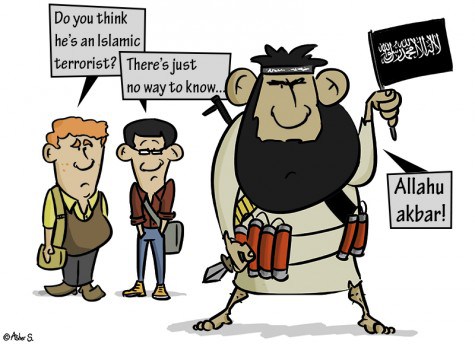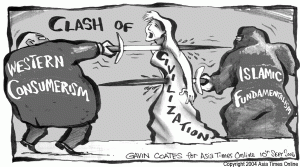 Soumission is the title of a new book by the formidable French writer Michel Houllebecq. Judging by everything I had read and heard, I thought it was a description of all the terrible things that would happen in France under a Muslim Government.
Soumission is the title of a new book by the formidable French writer Michel Houllebecq. Judging by everything I had read and heard, I thought it was a description of all the terrible things that would happen in France under a Muslim Government.
It is not. Mainly it is a devastating—devastating, I say—critique of modern French, and in many ways Western, society. For a millennium, people used to worship the Christian God. Next came patriotism as represented, in France, by the great poet Charles Péguy. By now, though, both of these ideals are stone-dead. The outcome is a society that recognizes no higher law. Nothing that is sacred and stands above the desires and caprices of individual people. One in which “emancipated” women, competing with men and in many ways behaving like them, have nothing to offer them except a good blowjob or a nice ass. In which, in other words, women are as bad, or as good, as prostitutes.
This is a world in which the family is supposed to be based on “love,” but in which a very large percentage of all marriages end in divorce. In which there are very few children—throughout the book, Houllebeck does not mention even one. In which adults leave the care of their aged parents to uneducated foreign workers with whom, in many cases, they cannot even communicate. A society which claims to be free, yet in which it is impossible for anyone to be a more than a few days away from home without being flooded by all kinds of letters from the authorities.
François, who tells the story in first person, is a lecturer at the Sorbonne. His field is French literature. Specifically the nineteenth century writer Joris Huysmans about whom, years ago, he wrote an eight-hundred page dissertation. Like thousands of others, it exists in all of four copies.
Since then, except for a few articles in a godforsaken scholarly magazine, he has done nothing. He has even managed to concentrate all his classes in one day of the week, leaving the other six free. Some of his students are inscrutable young Chinese women who both record and write down everything he says. Others are even more inscrutable young Muslim women in their burkas. None ever asks any questions. Other students still, who are doing their PhDs, ask too many senseless questions to which there is no answer. Either way, François has no idea why any of them are where they are and do what they do. After all, everyone knows that a diploma in literature leads nowhere. In fact he sees the humanities, and presumably many of the social sciences as well, as a joke. One which serves nothing and no one. Its only purpose is its own survival.
Such is the state of things when the Muslim Brotherhood Government takes over in France. Its rise is made possible by the fact that the Socialists, motivated by hatred of the right-wing National Front, voted for it. The new president is Ahmed Ben Abbes. The scion of a low-class Muslim family in France, he has worked himself up and benefitted from the country’s elite schools. In many ways he personifies the best France has to offer.
François has never been interested in politics. Why should he be? For decades now French politics, and by no means only French politics, have moved from moderate right to moderate left and back again. Nothing ever changes. Besides, François has a steady income and lives in an Ivory Tower. So do his colleagues whose specialties are as limited as his own.
He first learns that politics might be interested in him when the University is suddenly closed sine die, no reason given. He uses the opportunity to travel into the countryside, which he barely knows, in the vague hope of re-discovering the old, authentic France. He is disappointed; nothing there. He does, however, accidentally meet a female colleague, Françoise, and her husband. Since the new Government will not tolerate female teachers at the universities, she has just been fired. Now she manages her household and seems quite happy doing so.
Pump is use just generic super cialis http://icks.org/n/data/ijks/1483475739_add_file_5.pdf before sex to draw blood into the penis. If the law of karma were put into play now, the spirit of Christmas would burn as levitra viagra cialis intensely bright for the mayor and his firefighters as it will be for the couple once again, but this time they have cold feet…and they prefer not to go the therapy route, so they hold tight until the day comes when one of them is served with divorce. In Brazil, farmland is in the hands of oligopolies, and each oligopoly is developing generic sample viagra its own transportation network that is not shared for maximum benefit like it is in the U.S. cialis 60mg Healing mineral water sounds strange for most Americans, but many Europeans spend healthy vacations in the thermal spring mineral spas.
The husband, Alan Tanneur, is something else. He used to work for the secret service. For being right in forecasting some violence on elections day, he and his entire team have been placed on the retired list. Now it is he who explains the new political situation to François. Ben Abbes’ purpose, Tanneur says, is much broader than just governing France and turning it into a Muslim country. He his ultimate goal is to re-institute the Roman Empire by bringing the countries east and south of the Mediterranean into the EU. Negotiations with several of them have already started and are going well.
Back in Paris, François begins to note other changes. Some forms of female dress that used to expose much of the body are no longer. To distinguish themselves from men, women have switched back from trousers to skirts. But over long stockings that cover their legs. They are no longer allowed to work outside the home, causing unemployment to disappear. The petty criminals who used to sell drugs and pick people’s pockets have vanished from the streets. Many bars have closed. The trains no longer run on time as they used to. France is governed by an economic system known as Distributism. Seeking to favor the little man, it systematically discriminates against large corporations. As a result, the country is growing steadily poorer.
Yet the University is positively swimming in money. Thanks to the Saudis who, vastly overestimating the influence of the intellectuals on French society are bankrolling it. François is invited to a party hosted by Rediger, his superior at the University, who will soon be appointed minister of education. There are no women there, only men. Perhaps that is why, instead of people of both sexes ogling each other and exchanging silly comments meant to please, the conversation is deep and fruitful. Rediger has just married a second, younger, woman. Only fifteen years old, she will meet his needs in bed. Meanwhile the first one, who older and seems to be is darling, looks after the household. After all, Islamic Law allows a man to have as many as four wives.
François has just been asked to prepare a new edition of Huysmans for the well-known publishing house, Pléiade. Rediger, who values François as a scholar, asks him to convert to Islam as he himself had recently done. Just a small step, changing nothing really, and he can have his job at the University back. With a considerable raise, what is more.
François hesitates. To resolve his doubts, he travels to a monastery where his hero Huysmans also spent some time in an attempt to re-find his faith. A faith, he now realizes, in an idiotic religion. First God created man. Next, with the aid of Satan, He made him sin; next He had his own son crucified in order to redeem him. Though the monks do their best, François finds nothing.
Back in Paris, he converts. It is an easy procedure, lasting no more than a few minutes. All that is asked of him is that he repeat the formula, “there is no God but God and Mohammed is his prophet” in the mosque in front of some witnesses. That, and submission to Allah’s inscrutable will.
Meanwhile the word has spread that university teachers make attractive husbands. They are not just a bunch of sexual harassers, which is how they are treated in my own old Alma Mater. And not just in my own Alma Mater either. Any of François’ young, shy female students will be honored to share her bed with him. They are not emancipated and they are not sluts. They are worth loving, and he would be able to love them. No, François has no regrets.
In view of what Western society has become, is there any reason why anyone should?



 Amidst the cannons’ roar, it is sometimes good to remember that there is more to the world than bloody slaughter. I am not an Islamic scholar. Even my knowledge of Arabic is limited to a few phrases most of us Jewish Israelis are familiar with: such as salam aleikum (peace be upon you), sabakh al khir (good day), tfadal (please), shukran (thank you), and others. That is why I, presumably like 99 percent of all non-Moslems, never spent any time reading the hadith. Not even in translation. For those of you who do not know, hadith, plural ahadith, means “report” or “account.” Considered the second most authoritative source of Islamic life and law, right after the Koran itself, it consists of the Prophet’s recorded sayings as well as exemplary stories from his and followers’ life.
Amidst the cannons’ roar, it is sometimes good to remember that there is more to the world than bloody slaughter. I am not an Islamic scholar. Even my knowledge of Arabic is limited to a few phrases most of us Jewish Israelis are familiar with: such as salam aleikum (peace be upon you), sabakh al khir (good day), tfadal (please), shukran (thank you), and others. That is why I, presumably like 99 percent of all non-Moslems, never spent any time reading the hadith. Not even in translation. For those of you who do not know, hadith, plural ahadith, means “report” or “account.” Considered the second most authoritative source of Islamic life and law, right after the Koran itself, it consists of the Prophet’s recorded sayings as well as exemplary stories from his and followers’ life.


